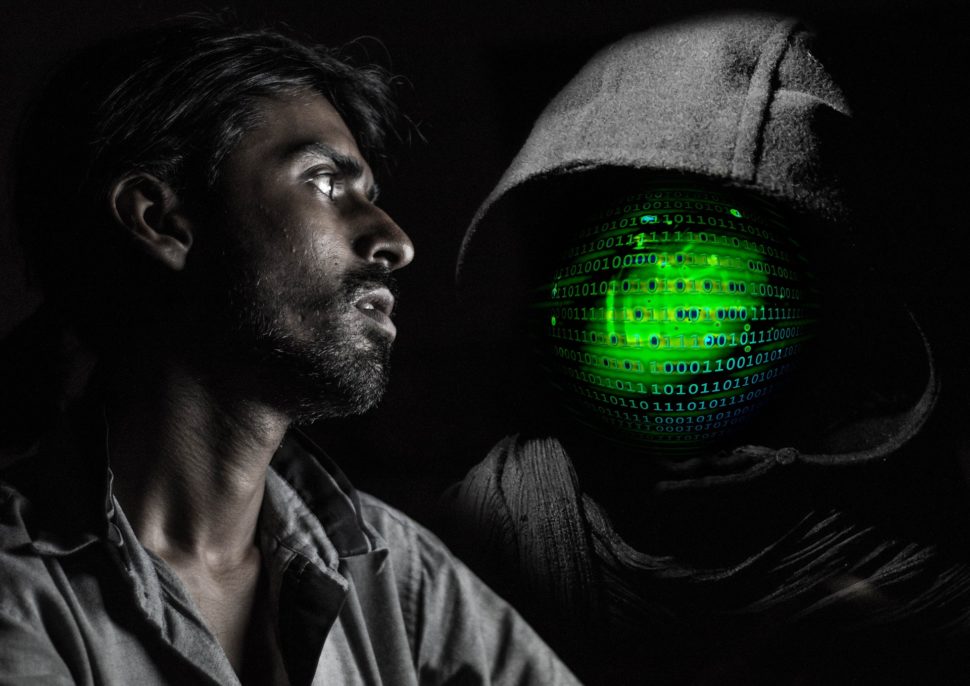Facebook hackers, cyber attacks, and Russian influence have dominated the news over the past year. But many still don’t have a clear picture as to what this means when it comes to telecommunications security.
Join Edgy Labs as we unravel the mystery behind modern-day hackers.
Following the indictment handed down by Robert Mueller last week, stories of covert Russian hacking are yet again dominating the news in the U.S. However, most of us (including reputable news writers) don’t really have a clear picture of what hacking is–aside from what we’ve seen in TV shows and movies.
To help us better understand the world of hacking and cyber attacks, Edgy Labs reached out to a Security Operations Analyst who has worked closely with U.S. government agencies including the NSA.
In order to protect their privacy, they will be referred to here with the pseudonym Zed.
How are “political rhetoric[s] about hacking” and “Hollywood’s idea of what real hackers do” related?
[ZED]: They are related in their complete lack of understanding of what hackers are. Both in politics and in Hollywood they are seen as nothing less than magic computer wizards. To a certain extent, hacking is a bit of magic but it is not nearly as glamorous as politicians believe or Hollywood portrays.
What DO real hackers do?
[ZED]: Look at a lot of assembly language instructions.
There are a lot of legitimate ways to define a hacker but the ones I personally find to be the true hackers are the ones involved in reverse engineering and exploitation development.
A hacker is one who will study the gears and their interaction in a watch until they know the watch more personally than even the watchmaker. Not only do they know how the watch works, they know how the watch will act if any gear is tampered with. With that knowledge, they can then tinker with the watch and make it accomplish whatever they want, limited only by physics and their imagination.
How does this involve Facebook, the hotel industry, and telephone & Internet communication services?
[ZED]: These are the “watch makers” who need to become hackers.
Facebook specifically has been making amazing strides in securing their services. This is mostly due to the fact that they are taking a proactive approach to the problem malicious exploitations. On the other hand, you have other unnamed Telephone & Internet Communication services who will insert backdoors into their hardware on purpose.
“Facebook specifically has been making amazing strides in securing their services.”
Facebook recently turned over 3,000 Russian-bought ads to federal investigators that focused on “divisive social and political messages” on issues like immigration and gun rights.
However, just yesterday Facebook announced plans to testify to over 80,000 Russia-linked posts on its platform that sought to interfere in the 2016 election and were viewed by up to 126 million people. Elliot Schrage, vice-president of policy and communications at Facebook, said the company is “continuing to refine our techniques for identifying the kinds of ads in question”.
Communication “backdoors” on the other hand, may be used by U.S. intelligence services and the National Security Agency to conduct surveillance.
Unfortunately, the infamous Shadow Brokers hacking group leaked many of these covert tactics (including the EternalBlue exploit) back in April.
As a result, hacking campaigns like APT28 (reportedly launched by Russian group Fancy Bear) and WiFi hackers have been able to take advantage of these vulnerabilities in order to steal credentials from high-value guests of European and Middle Eastern hotels through their WiFi networks.
What kind of tech (if any) is making this possible?
[ZED]: Actually there is one extremely powerful tool and that is IDA which is a robust disassembler and debugger. IDA makes reverse engineering a comparative cakewalk. There is also the new DOM fuzzer made by the Project Zero team in Google, which is open source and on github. There is also Kali Linux for all your ethical hacking needs. The Kali distro is also used by a lot of script kiddies, which are lesser “hackers” since they almost never contribute to any vulnerability research but are more than happy to utilize the knowledge obtained.
It’s also important to note that both the U.S. (Google) and Russia (RQC) designed the world’s most powerful functional quantum computing systems, running on 49 qubits and 51 qubits, respectively.
Still, as the Russian Facebook hacker allegations demonstrate, audience influence (via big data and IIoT) is the primary objective for these massive entities–not mere processing power.
But that doesn’t mean anyone is shying away from continuing to integrate supercomputers into our daily lives. In fact, earlier this month, Google began it’s own journey into the realm of wearables with their HTC partnership and Pixel 2 release.
Do you think that the series of Russian hacks have drastically shifted conventional notions of “national security” within information & telecommunication technologies?
[ZED]: I don’t think the conventional notion has actually changed.
The conventional notion is still “it’s important but I’m not willing to implement stronger security practices because that would be too hard”. Anyone who needed to know about Russia’s capabilities knew about it before the media blitz. Anyone that didn’t know is, generally speaking, not going to change their behavior.
I don’t think the general public will demand/accept any legislation on the matter until they have been personally and directly affected. That is because the solution is hard to accept and that is to make the United States of America a closed network. The internet wasn’t made with security in mind and by its very structure will always be susceptible to nation-state attacks, like the ones from Russia.
And because of the internet’s inherent security issues, entities (like Russia and China) and (perhaps even more importantly) individuals can successfully profit from our information systems.
For the foreseeable future, some argue for stronger net security (through a “closed network” approach) while others want net democratization. But will changing how US citizens access the digital world really have an effect on hacking culture?


















Hello guys I wan to say this to whom it may concern. Investing in crypto was my husband ideal. I trade with sim ceypto platform not knowing they where sc!m and this made me lose almost all I had. Am only happy because I found help after reporting to Mrs Lisa Eric and she helped me recover all I lost to these fake crypto platform. My advice is that everyone need to be careful of the platform you deal with. If you have falling victim of these fake platform do not hesitate to file a complaint to Lisa via he mail ( Lisa.Eric @ proton.me ) she helped me and I believe she can help you too. Stay safe guys. You can visit WhatsApp +84 94 767 1524.